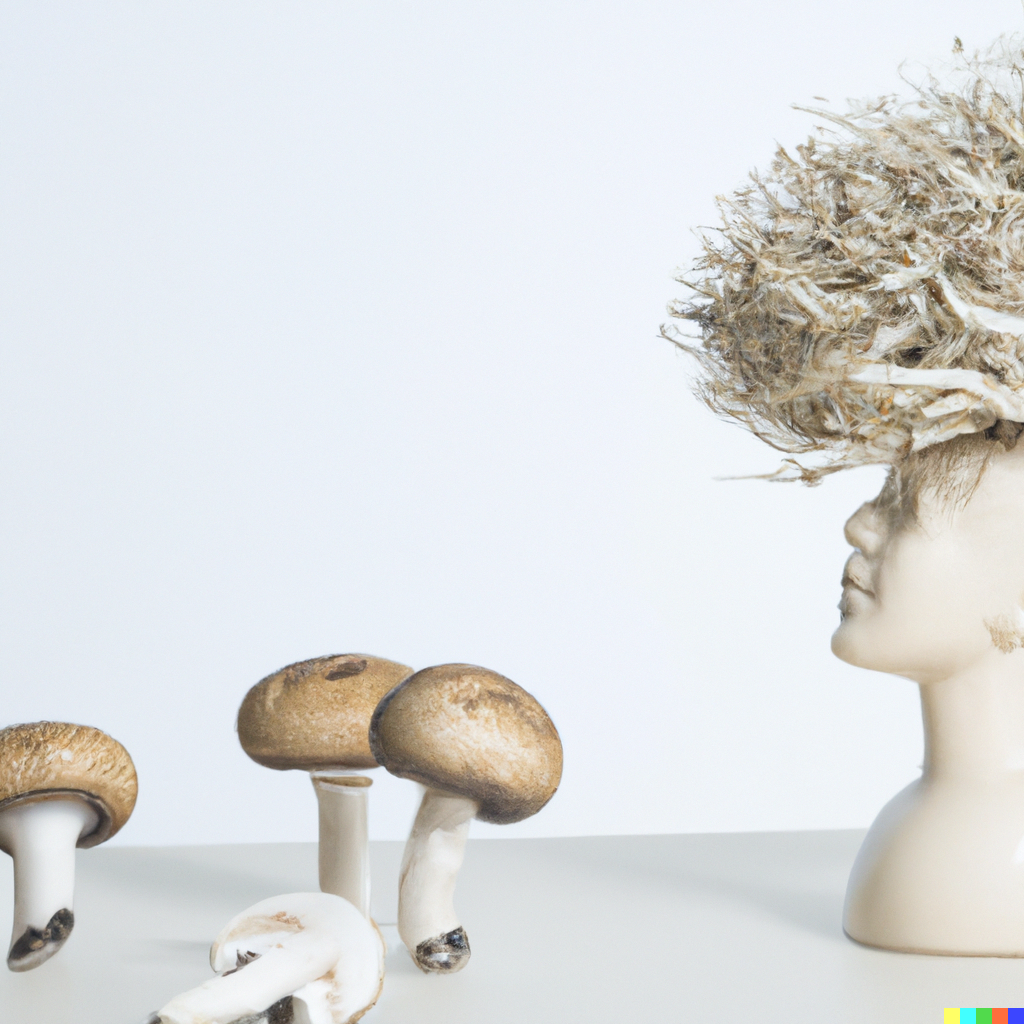
Unveiling the Potential of Medicinal Mushrooms for Depression: A Comprehensive Guide
Discover how the power of medicinal mushrooms can help alleviate depression and improve overall mental health
Depression is a common mental health disorder that affects millions of people worldwide. Traditional treatments, such as therapy and medication, have been the go-to solutions for those suffering from this debilitating condition. However, in recent years, there has been a growing interest in alternative treatments, with medicinal mushrooms for depression being one such option. This article will delve into the potential benefits of medicinal mushrooms in treating depression and improving overall mental health.
-
What are Medicinal Mushrooms?
Medicinal mushrooms have been used in traditional medicine for centuries, particularly in Asia. These fungi are rich in bioactive compounds, such as polysaccharides, triterpenes, and phenolic compounds, which are known for their health-promoting properties. Some of the most commonly used medicinal mushrooms include:
- Reishi (Ganoderma lucidum)
- Lion’s Mane (Hericium erinaceus)
- Chaga (Inonotus obliquus)
- Cordyceps (Cordyceps sinensis)
These mushrooms have been linked to various health benefits, including immune support, anti-inflammatory effects, and enhanced cognitive function. In recent years, their potential in alleviating depression has gained attention from researchers and health practitioners alike.
-
Medicinal Mushrooms for Depression: The Science Behind It
Several studies have been conducted to explore the potential of medicinal mushrooms in treating depression. The research has primarily focused on the following aspects:
a. Neurogenesis and Neuroprotection
Neurogenesis, the process of creating new neurons, is crucial for maintaining optimal brain function. Stress and depression have been found to suppress neurogenesis, contributing to the deterioration of mental health. Medicinal mushrooms, such as Lion’s Mane, have shown promise in promoting neurogenesis, thanks to their bioactive compounds, like hericenones and erinacines.
These compounds are thought to stimulate the production of nerve growth factors (NGFs), proteins essential for the growth, maintenance, and survival of nerve cells. By enhancing neurogenesis, medicinal mushrooms may improve cognitive function, memory, and overall brain health, which could be beneficial for individuals battling depression.
b. Anti-Inflammatory and Antioxidant Properties
Chronic inflammation and oxidative stress are known to be associated with depression. Medicinal mushrooms, such as Reishi and Chaga, are packed with anti-inflammatory and antioxidant compounds, which help combat inflammation and oxidative stress in the body.
By reducing inflammation and oxidative stress, medicinal mushrooms may alleviate some of the symptoms of depression and promote overall mental health.
c. Regulation of Stress Hormones
Cordyceps is a medicinal mushroom that has been found to help regulate stress hormones, such as cortisol. High cortisol levels have been linked to increased stress, anxiety, and depression. By modulating the production of cortisol, Cordyceps may help improve the body’s response to stress and potentially reduce the symptoms of depression.
-
How to Incorporate Medicinal Mushrooms into Your Daily Routine
If you are considering adding medicinal mushrooms to your daily routine to help alleviate depression, there are several ways to do so:
a. Supplements
Medicinal mushroom supplements are readily available in various forms, such as capsules, powders, and tinctures. These can be easily incorporated into your daily routine. Be sure to choose high-quality, reputable products, and follow the recommended dosage guidelines.
b. Teas and Coffee
Many medicinal mushrooms, like Reishi and Chaga, can be consumed as a tea. Simply steep the dried mushroom pieces or powdered extracts in hot water, strain, and enjoy. You can also find mushroom-infused coffee products that combine the benefits of medicinal mushrooms with your daily cup of joe.
c. Culinary Creations
Some medicinal mushrooms, like Lion’s Mane, can be cooked and enjoyed in various dishes. Try incorporating them into soups, stir-fries, or even as a meat substitute in vegetarian and vegan meals.
-
Potential Side Effects and Precautions
Although medicinal mushrooms are generally considered safe for consumption, some individuals may experience side effects or allergic reactions. Common side effects may include digestive upset, headaches, or skin rashes. If you experience any adverse reactions, discontinue use and consult your healthcare provider.
It is essential to consult a healthcare professional before adding medicinal mushrooms to your routine, especially if you are pregnant, breastfeeding, or taking medication for an existing medical condition.
-
The Importance of a Holistic Approach
While medicinal mushrooms show promise in alleviating depression, they should not be considered a standalone treatment. A holistic approach, combining traditional treatments like therapy and medication with alternative therapies like medicinal mushrooms, can provide a comprehensive treatment plan to effectively manage depression.
Incorporating lifestyle changes, such as regular exercise, a balanced diet, adequate sleep, and stress management techniques, can also play a crucial role in improving mental health and overall well-being.
Conclusion
Medicinal mushrooms for depression offer a promising alternative treatment option for those seeking a natural approach to mental health. With their potential to promote neurogenesis, reduce inflammation and oxidative stress, and regulate stress hormones, these fungi may provide a valuable addition to traditional depression treatments.
However, it is essential to consult with a healthcare professional before incorporating medicinal mushrooms into your daily routine and to use them in conjunction with other therapies and lifestyle changes for the best results.
By embracing a holistic approach and combining the power of medicinal mushrooms with other evidence-based treatments, individuals battling depression may find relief and hope on their journey to improved mental health.
